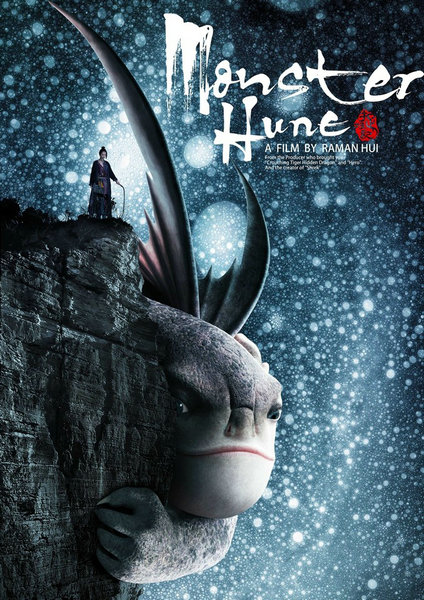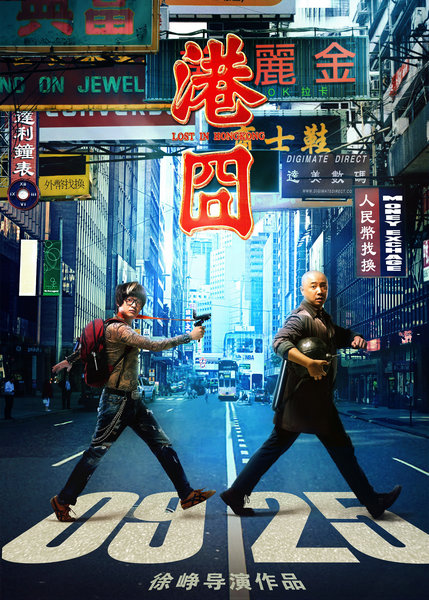
 |
|
Mojin: The Lost Legend, starring Huang Bo (center) and Chen Kun (right), has raked in 1.25 billion yuan ($198 million) since its premiere on Dec 18.[Photo provided to China Daily] |
In 2015, Chinese filmmakers stepped out of Hollywood's shadow, producing films that set box-office records even as critics say artistic merit still lags behind.
It was the best of times. It was the worst of times.
This famed line by Charles Dickens has been quoted by many critics to illustrate China's chaotic movie market.
As 2015 ends, the saying could celebrate the box-office bonanza but also mourn the anemic respect for art.
Figures as of Monday show that China's movie industry has grossed an astonishing box-office total of 43.3 billion yuan ($6.87 billion), leaping nearly 48 percent from last year's 29.6 billion yuan, according to the entertainment research giant Entgroup.
The market, recently pushed by blockbusters Mojin: The Lost Legend and Mr. Six, may ultimately accumulate 43.8 billion yuan by the end of this year, predicts Entgroup's senior analyst Guo Kaixi, in an e-mail interview with China Daily.
Up 3 percentage points from last year, China now accounts for 16 percent of the global box-office takings. Around 60 percent of this year's box office has been raked in by more than 500 homegrown titles. The figure was 54 percent in 2014.
Monster Hunt (2.44 billion yuan) still holds the title of the highest-grossing film of all time on the Chinese mainland-slightly ahead of Fast and Furious 7 (2.43 billion yuan).
 |
|
China's movie market has continued growing in 2015. Some of the biggest winners of the year include Fast and Furious 7.[Photo provided to China Daily] |
The live-action animated blockbuster, produced by local animators, proves that China has what it takes to beat its Hollywood rivals.
While 100 million yuan was a threshold to judge a big commercial winner last year, the marker this year became 1 billion yuan.
Eight movies, including five made in China, hit the new standard.
Next to the champion Monster Hunt, Lost in Hong Kong, a sequel to the former highest-grossing domestic production Lost in Thailand, takes the second slot among homegrown titles at 1.61 billion yuan.
The other three Chinese blockbusters are Goodbye Mr. Loser (1.44 billion yuan), Mojin: The Lost Legend (1.25 billion yuan since its Dec 18 premiere) and Jian Bing Man (1.16 billion yuan).
An interesting phenomenon: All five were released after July and four are comedies (except the fantasy-action thriller Mojin), which means the latter half of this year has earned a fortune in laughs.
But their average score of 6.5 out of 10 on major movie sites, such as Douban.com and Mtime.com, reveals the disappointing fact that their market triumph doesn't equate to respected content or particular artistic value.
Meanwhile The Imitation Game, Rush and The Martian-despite all achieving scores beyond 8.5-failed to win the hearts and wallets of the Chinese even as they ran away with Oscar or Golden Globe nominations.
Experts and industry sources reached by China Daily have diverse explanations, but most agree that typical Chinese moviegoers prefer tales close to their local struggles and aspirations-obviously a cultural puzzle for Hollywood, half a world away.
 |
|
China's movie market has continued growing in 2015. Some of the biggest winners of the year include Monster Hunt.[Photo provided to China Daily] |
Shen Jian, founder of the weekly TV show World Film Report, says this year's highest-grossing movies are more accurately tailored for the mainland market, while stars and famed directors are no longer guarantees for big box office.
Zuo Heng, a veteran researcher at the China Film Archive, attributes the frenzy over comedy to the rapid rise of young moviegoers in smaller cities.
The populous country had nearly 31,000 screens in around 6,200 cinemas by the end of November, with most of the new ones spread among small and mid-sized cities, domestic media reports say.
While critic Tan Fei finds Internet giants have extended their tentacles to every corner of the movie industry, Zuo criticizes their over-reliance on intellectual property, saying it may destroy creativity and originality.
IP refers to a well-known production with the potential to grow into a marketable franchise, including movie sequels, TV series, books, computer games and mobile games, explains Tencent Pictures' CEO, Cheng Wu.
Big-data monitoring to control a movie from script to promotion is another feat by Internet behemoths.
 |
|
China's movie market has continued growing in 2015. Some of the biggest winners of the year include Lost in Hong Kong.[Photo provided to China Daily] |
Directors Xu Zheng and Zhang Yibai, both harvesting success from big-data research, have defined themselves as "production managers" aiming to please customers rather than directors.
Based on the growth rates, Entgroup gives an optimistic forecast for next year, saying 2016 may see a record of 60 billion yuan and a single movie surpassing 3 billion yuan.
But on Tuesday, Wuershan, director of Mojin, looked ahead with a different but old spirit.
"I hope a movie will gain success just because it's a good movie, that is a glory belonging to the industry," he says.
 |
|
China's movie market has continued growing in 2015. Some of the biggest winners of the year include Goodbye Mr. Loser.[Photo provided to China Daily] |

Presented by Chinadaily.com.cn Registration Number: 10023870-7
Copyright © Ministry of Culture, P.R.China. All rights reserved